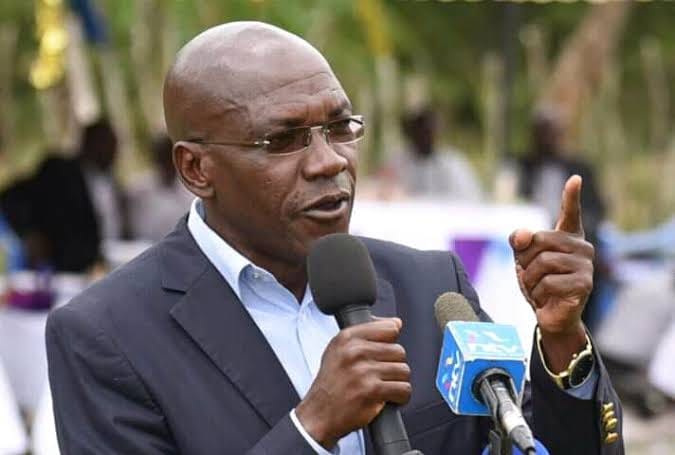Kakamega Senator Boni Khalwale has called on Parliament to urgently intervene following significant cuts in capitation funds allocated to public schools, warning that Kenya’s free education programme is under threat.
In a passionate statement on Friday, Khalwale emphasised the need to protect the legacy of former President Mwai Kibaki, under whose administration free primary and secondary education was introduced. “If ever there was a time the nation needed Parliament, it is now,” he declared, calling the education reforms “a great transformational dream and legacy” that must be preserved.
His remarks come in the wake of Treasury Cabinet Secretary John Mbadi’s confirmation that the government will only disburse Sh16,900 per student annually Sh5,344 less than the previously promised Sh22,244. Mbadi cited rising student numbers and budget constraints as the reasons behind the decision. “Let us not lie to ourselves. The budget cannot support the Sh22,000 capitation,” he said while appearing before the National Assembly’s Education Committee.
The announcement has sparked outrage among lawmakers and school heads alike. Many schools, which had already budgeted based on the earlier figures from the Ministry of Education, are now grappling with severe financial shortfalls. Some have sent students home, suspended activities, or resorted to fundraising to meet basic operational needs.
Appearing alongside Education CS Julius Ogamba, Mbadi defended the move, stating the capitation had to be adjusted to match fiscal realities. However, the crisis has intensified concerns over the sustainability of the country’s education system.
Further complicating the situation is a report by the Auditor General that revealed the government underfunded schools by Sh117 billion between 2021 and 2024. Secondary schools faced the biggest deficit at Sh71 billion, followed by junior secondary (Sh39.9 billion) and primary schools (Sh14 billion).
Despite the underfunding, the audit also exposed overfunding in some cases Sh3.7 billion was misallocated to 354 secondary schools, 99 junior secondary schools, and 270 primary schools.
Khalwale’s call adds pressure on Parliament to address what is becoming a full-blown education funding crisis, with far-reaching implications for millions of learners across the country.

